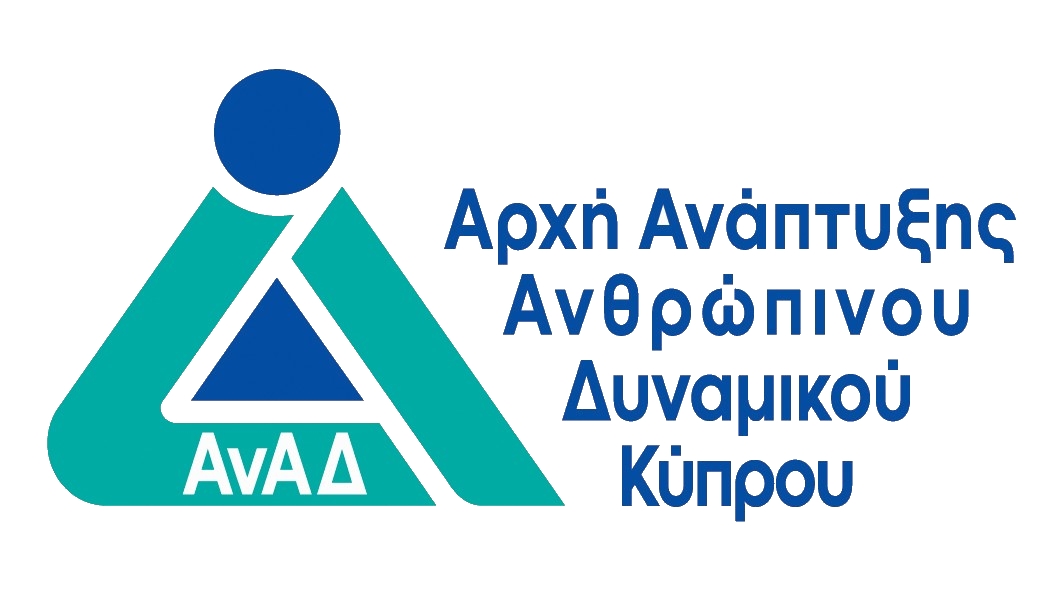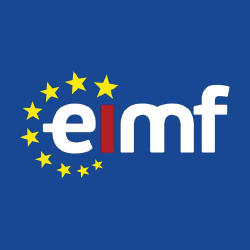
Digital Currency, Compliance & Risk: The 5th AML Directive and the EU AML Package
- Χρηματοοικ. Ασφαλιστικά Τραπεζικά - Καινοτομία/ Start Ups

ΠΕΡΙΓΡΑΦΗ
Cryptocurrencies and Blockchain Technology are becoming popular topics to explore, due to the way they are set to refine and revolutionize the world of business and particularly the financial services sector. While Blockchain’s strongest pillars, decentralization, transparency, immutability and distribution, present significant opportunities, crypto assets, cryptocurrencies and crypto-projects, in general, are sometimes related to illegitimate activities, raising serious money laundering and criminal activities concerns. Policymakers and regulators face increasing pressure to support innovation while ensuring that the required regulations and policies to prevent money laundering and monitor the transactions conducted on blockchain via cryptocurrencies are in place and all stakeholders can be held accountable for the communities they intend to serve.
The introduction of the 5th AML Directive, which constitutes a key development and a uniform framework for regulators across the EU, exemplifies this effort to bring cryptocurrency activities within the regulatory ambit by introducing relevant provisions and imposing relevant obligations to certain cryptocurrency providers and activities. In essence, the 5th AML Directive intends to make the legal situation on the cryptocurrency market more transparent and it is enriched with regulations related to cryptocurrency businesses, aiming to strengthen the barriers to fight against money laundering and restrain terrorist financing.
This highly researched course examines what money laundering and terrorist financing are, what they involve, explores the new obliged entities in the crypto asset sphere and provides a broad overview of the essential concepts of blockchain technology, a deep explanation of what bitcoin is, anonymity, pseudonymity on blockchains, what tokens and cryptocurrencies are, and the processing of transactions on blockchain ledgers with reference to popular cryptocurrencies and blockchain protocols. At the same time, the course provides the risks and challenges of the increased use of cryptocurrencies by which illegitimate activities can be made.
More importantly, the course is designed to deeply explore the growing relationship between Blockchain, cryptocurrencies, money laundering and the financing of terrorism. The course encourages participants to consider blockchain’s potential impact in the future of preventing money laundering on the one hand and improving KYC/AML compliance regimes on the other.
ΣΚΟΠΟΣ ΣΕΜΙΝΑΡΙΟΥ
By the end of the programme, participants will:
- have an overview of the Anti-Money Laundering and Terrorist Financing regimes
- be able to explain the 5th AML Directive, its key amendments and electronic wallet providers and virtual currencies under the directive
- be able to review and analyse the CySec’s Directive for the Registration of CASPs
- explore the blockchain basics, including Blockchain’s evolution, features and unique characteristics, smart contracts, Dapps, blockchain applications, tokenization and tokenized economy
- discuss popular cryptocurrencies and blockchain protocols
- understand how criminals use cryptos to make criminal activities
- comprehend how the 5th AML Directive affects the cryptocurrency business
- explore methods and solutions to mitigate money laundering risks and to improve AML/KYC compliance regimes
- comprehend the relationship between blockchain, cryptocurrencies and the AMLD5
ΣΕ ΠΟΙΟΥΣ ΑΠΕΥΘΥΝΕΤΑΙ
The course is also ideal for:
- Compliance officers
- EU Lawyers
- Third-country lawyers
- Internal lawyers (working in any legal department of an organization or government)
- Blockchain technologists and developers
- IT professionals
- Professionals in the banking sector (Including neo and challenger banks)
- Financial Advisors
- Executives and senior managers
- Software Developers
- Attorneys of the Republic
- Legal Services Professionals
- Graduate Lawyers
- Junior Lawyers
- Law Students
- Law Researchers
- Legal Projects Managers
- Legal Analysts
- Government Agencies
- HR Managers
- Corporate Administrators
- Strategy Managers
- Technology Strategy Leaders
- Digital Transformation Heads, Officers and Team Members
- Innovation Leaders and members of Innovations labs
ΠΕΡΙΣΣΟΤΕΡΕΣ ΠΛΗΡΟΦΟΡΙΕΣ
Anti-Money Laundering (AML) and Terrorist Financing (TF) framework
- Introduction
- What is and what is involved in Money Laundering and Terrorist Financing
- The evolution of AML regime: Timeline and scope of the regulations
- Technology, Money Laundering and Terrorist Financing
- From the 4th AML Directive to the 5th AML Directive
- Concepts, Terminology, Definitions
The 5th AML Directive
- An introduction to the 5th AML Directive
- Key amendments
- New obliged entities
- Electronic wallet providers and Virtual currencies under the 5th AML Directive
- FATF Travel Rule
- Review of the CySec’s Directive for the Registration of CASPs
Blockchain Basics
- Introduction to Blockchain Technology: What is it and how it works
- Evolution of Blockchain
- Blockchain Features and unique characteristics
- Smart Contracts: Their significance and impact
- Decentralized Applications (Dapps)
- Applications of Blockchain: Cryptocurrencies
- Tokenization and Tokenized Economy
Cryptocurrencies
- Introduction to cryptocurrencies: Bitcoin, Altcoins, Stablecoins, CBDCs
- What is a cryptocurrency and how it works
- Discussing popular cryptocurrencies and blockchain protocols
- Understanding digital tokens
Legal classification of tokens:
- -Fungible Tokens Vs Non-Fungible Tokens (NFTs)
- -Payment Tokens
- -Utility Tokens
- -Security Tokens
- How criminals exploit cryptos for illicit activities
- Cryptocurrencies’ anonymity and pseudonymity: A method for criminal activities
- The risks and challenges
Cryptocurrencies under the 5th AML Directive.
- How the 5th AML affects the cryptocurrency business
- How to mitigate money laundering risks
- FATF and Risk-based approach
How Blockchain can enhance the AML and KYC procedures
- Solutions for more efficient AML and KYC procedures
- Customer Due Diligence Process/Distributed Client Data Collection/ Data Protection and Management
- Use cases
Conclusion
- Closing Remarks
- Q&A
Training Style
The programme is designed to deliver theoretical knowledge mainly supported by power-point presentations. Participants will also benefit from discussions and a Q&A session at the end of the programme, while they will take away the knowledge gained to be transferred to their workplace.
CPD Recognition
This programme may be approved for up to 14 CPD units in AML and Financial Regulation. Eligibility criteria and CPD Units are verified directly by your association, regulator or other bodies which you hold membership.
2nd Trainer to the course: Evdokia Marcou
Evdokia Marcou is a partner at The Hybrid LawTech Firm empowered by Christiana Aristidou LLC, having achieved this position at a young age. She is a Cyprus Bar Association member and works in corporate and commercial law, e-commerce, banking and finance, and intellectual property, and focuses on technology-oriented issues, with specialised fintech practice. She conducts research in blockchain and law, including blockchain-based uses for the public and private sectors. Evdokia provides consultations in banking and finance, payment innovation, banking digital transformation, remote onboarding, intellectual property, crypto-asset services, and corporate law. She advises start-ups and innovative businesses and participates in blockchain and AI projects. With extensive expertise in specialized business tasks, Evdokia has rich experience collaborating with industry leaders. She has assisted the head of delegation of CYS to the ISO TC-307 Blockchain Committee in drafting recommendations for standards. Additionally, Evdokia has provided valuable legal and regulatory services to support a bank’s digital transformation needs, structuring legal arrangements, and executing relevant documentation. Notably, she has successfully led a project on the implementation of biometrics and trust services within a financial institution, overseeing the legal aspects of the project. Evdokia has made contributions as a co-author to legal journals on blockchain and fintech. Evdokia also delivers training courses to private entities and professionals as a co-instructor. Evdokia holds an LLB from the QMUL and an LLM in corporate law from the LSE.
Πληροφορίες Εκπαιδευτή
Αναλυτικό Κόστος Σεμιναρίου
Για Δικαιούχους ΑνΑΔ
- € 530.00
- € 238.00
- € 0.00
- € 292.00
- € 292.00
Για μη-Δικαιούχους ΑνΑΔ
- € 530.00
- € 0.00
- € 100.70
- € 530.00
- € 630.70
Κοστολογικές Πληροφορίες
HRDA-approved seminars are exempted from VAT for eligible organisations applying for the HRDA subsidy. A 19% VAT will apply to seminars and participants who do not qualify for the HRDA subsidy
ΠΡΟΓΡΑΜΜΑ ΣΕΜΙΝΑΡΙΟΥ
Τρίτη - 12 Δεκ 2023
Ώρα
09:30 - 13:15
ΕΚΠΑΙΔΕΥΤΗΣ:
Χριστιάνα ΑριστείδουΤοποθεσία:
OnLine Virtual Classroom
Τετάρτη - 13 Δεκ 2023
Ώρα
09:30 - 13:15
ΕΚΠΑΙΔΕΥΤΗΣ:
Χριστιάνα ΑριστείδουΤοποθεσία:
OnLine Virtual Classroom
Πέμπτη - 14 Δεκ 2023
Ώρα
09:30 - 13:15
ΕΚΠΑΙΔΕΥΤΗΣ:
Χριστιάνα ΑριστείδουΤοποθεσία:
OnLine Virtual Classroom
Παρασκευή - 15 Δεκ 2023
Ώρα
09:30 - 13:15
ΕΚΠΑΙΔΕΥΤΗΣ:
Χριστιάνα ΑριστείδουΤοποθεσία:
OnLine Virtual Classroom
 Ελληνικά
Ελληνικά  English
English



 Αγγλικά
Αγγλικά
 14 ώρες
(
4 μέρες
)
14 ώρες
(
4 μέρες
)








































































